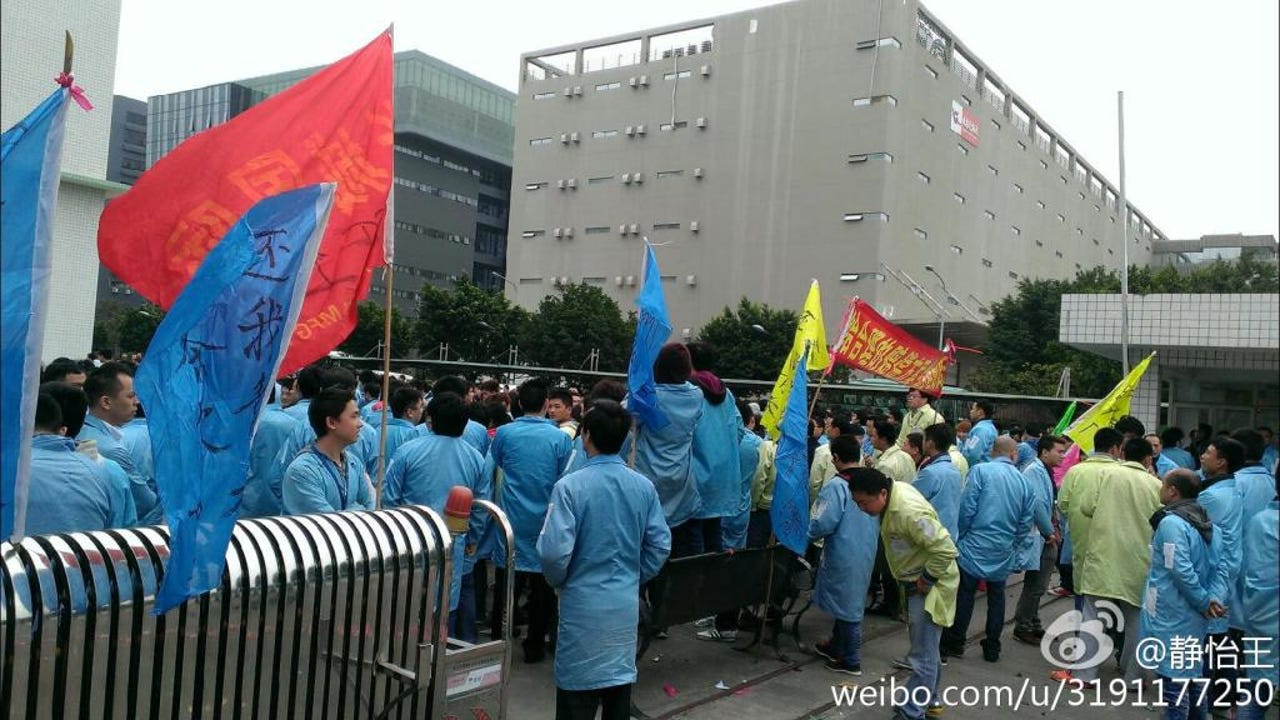Massive strike at IBM factory in China over Lenovo server deal


Featured
On 3 March 2014, more than 1,000 workers at the server-making IBM ISTC factory in Shenzhen, Guangdong, staged strikes and protested against the company's lump sum severance package.
According to a Shenzhen TV channel’s report published on 4 March, IBM ISTC, one of the strategic manufacturing bases of IBM global integrated supply chain, laid out two choices for the workers: either "willingly” leave IBM before March 12 with compensation plus an extra 6,000 yuan, or stay and "automatically" become Lenovo employees. In the latter scenario, the worker get to keep the same amount of compensation but without the 6,000 yuan. Neither plan is in accordance with the labour laws in China, according to the report.
Workers were chanting and marching within the factory compound and are accusing IBM for unilaterally terminating working contracts without proper compensation, which they expect to be: Average monthly salary × years of service × 2 + one month of salary.
A rematch made in heaven?
According to the TV report, angry workers also criticized the excessive working hours at IBM, while demanded the company provide immediate Occupational Health and Safety (OHS) checkups and extra compensation for the female workers who were pregnant or are nursing a baby.
"Many of us work from 8:00am to 11:00pm for a consecutive 15 days! IBM must provide us with OHS checkups!" said a worker at the scene of the strike.
Workers have handed a letter of grievances to the management and are now waiting for replies while continuing the strikes.
On January 23, 2014, Lenovo announced that it had purchased IBM's X86 server business for US$2.3 billion. The deal, said Lenovo's CEO Yang Yuanqing in another report by NetEase, brings Lenovo an extra US$5 billion in revenue, and expand its X86 server market share from the 6th to the 3rd in the world.